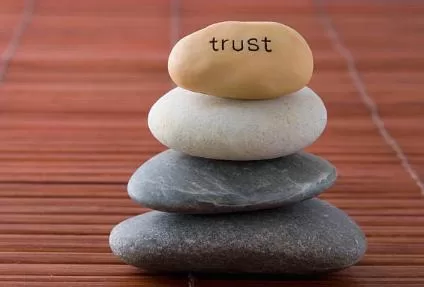How Can Self-Care Help With Managing Feelings Of Helplessness?
Learn how self-care empowers us to take control of our emotions and regain a sense of agency.

Selfpause Affirmation App
Download the app to get 1,000’s of affirmation meditations and everything you need to write, record and listen to your own.
There are times in life when we feel helpless. We may feel unable to alter a circumstance or overwhelmed by the difficulties we confront. Nonetheless, it is essential to remember that our responses to these events are within our control. Self-care routines are one strategy for managing feelings of helplessness. In this post, we will examine how self-care can aid in the management of emotions of helplessness and offer practical self-care methods to help you feel more in control.
What exactly is self-care?

Self-care refers to all the actions we take to maintain our physical, emotional, and mental health. It involves adopting proactive measures to promote our health and well-being and prevent burnout. Self-care is a necessity, not a luxury, particularly when we feel overwhelmed and worried.
How can self-care aid in coping with emotions of helplessness?
Self-care fosters self-consciousness.
Self-care methods such as mindfulness meditation, writing, and counseling can help us develop a greater sense of self-awareness. By increasing our awareness of our emotions and thoughts, we can recognize patterns of helplessness and develop more constructive responses. For instance, we may realize that we have a tendency to exaggerate situations or focus on bad results. By recognizing these patterns, we are able to question them and recast our thinking in a more constructive manner.
Self-care strengthens resiliency

Resilience is the capacity to cope with hardship and misfortune. Self-care habits, such as regular exercise, healthy food, and sufficient sleep, can help us build physical resilience by enhancing immune function and lowering the risk of chronic diseases. In addition, methods like mindfulness meditation and therapy can help us develop emotional resilience by enhancing our capacity to manage stress and control emotions. When we are more resilient, we are better able to overcome obstacles and thoughts of hopelessness.
Self-compassion is promoted via self-care.
Self-compassion is the practice of treating oneself with kindness, understanding, and acceptance, especially when facing challenging circumstances. Self-care techniques, such as taking a bubble bath, practicing yoga, or spending time in nature, can help us foster self-compassion by reminding us to be kind to ourselves. We can lessen sentiments of self-criticism and self-blame, which can lead to feelings of helplessness, by treating ourselves with love.
Self-care enhances self-respect.

Self-esteem is our perception of our own worth and value. Self-esteem is increased when we engage in self-care behaviors that make us feel good about ourselves, such as accomplishing a fitness goal, learning a new skill, or spending time with loved ones. In turn, this can make us feel more empowered and able to take action to better our circumstances. By focusing on our skills and achievements, we can overcome emotions of helplessness and increase our confidence in our abilities.
Self-care enhances happiness
Self-care techniques, such as obtaining adequate sleep, consuming a balanced food, and indulging in physical activity, can enhance our mood and alleviate melancholy and anxiety symptoms. When our mental and emotional health improves, we are more equipped to deal with emotions of helplessness and to take action to improve our circumstances. In addition, techniques such as mindfulness meditation and yoga can help us manage emotions of helplessness by reducing stress and fostering feelings of calm and relaxation.
Self-care strategies for coping with feelings of powerlessness.

Mindfulness meditation practice
Meditation on mindfulness is focusing on the present moment with openness, curiosity, and nonjudgment. By frequently practicing mindfulness meditation, we can become more conscious of our thoughts and emotions and learn to respond to them in a more positive manner. According to studies, mindfulness meditation helps alleviate symptoms of sadness, anxiety, and stress.
Regularly engage in physical activity
Frequent physical activity can improve our physical and mental health, elevate our mood, and reduce our stress and anxiety levels. Even a daily walk or light yoga practice can make a difference; a rigorous workout at the gym is not required. Pick an activity you enjoy and incorporate it into your daily routine.
Prioritize sleep

A sufficient amount of sleep is necessary for our physical and mental wellness. Sleep deprivation can contribute to anger, anxiety, and sadness. Strive for seven to eight hours of sleep per night and develop a nighttime ritual to help you unwind and prepare for sleep.
Employ self-compassion
Be sympathetic and nice to oneself, particularly through stressful circumstances. Treat yourself like you would a hurting friend or family member. This may mean taking a break, engaging in self-care practices, or reaching out to others for assistance.
Join forces with others

Relationships can help us feel less alone and more supported. If necessary, reach out to friends or relatives, join a support group, or seek professional assistance. Speaking with others about our emotions and experiences might help us create new perspectives and coping mechanisms.
Establish achievable goals
Goal-setting can help us feel more in control and more capable. Nonetheless, it is essential to establish goals that are attainable. Break down enormous objectives into smaller, more doable tasks, and applaud your progress as you go.
Take breaks

Taking a break might assist us in recharging and gaining perspective when we feel overwhelmed or anxious. This may entail going on a brief stroll, practicing deep breathing, or engaging in a self-care activity. Remember that taking breaks is not a sign of weakness, but rather an essential component of self-care.
Conclusion
It is typical to feel helpless, but it does not have to define us. By engaging in self-care, we can enhance our physical and mental health, develop resilience, and foster emotions of self-worth and autonomy. Self-care methods, such as mindfulness meditation, regular physical activity, and social interaction, can aid in the management of emotions of helplessness and the development of good coping strategies. Remember to treat yourself with kindness and compassion, to make reasonable goals, and to emphasize self-care activities that support your well-being. You may overcome emotions of powerlessness and feel more in control of your life with time and practice.
